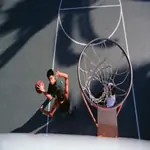Kim Michel, who coached the Juanita High School girls basketball team for three years, recalls the frustration and disbelief she felt late last season when an opposing squad, up 29 points going into the fourth quarter, kept its starters in for the rest of the game.
"When that game was over, that was the most emotional I've been towards another coach," Michel says. "My players in the locker room were devastated. Their heads were down. They were crying. I was wondering, 'Are they going to quit?' "
Michel's bitter memory raises an interesting question, brought to light last month when Woodinville's fastpitch softball team beat Franklin 64-0 in a KingCo 4A Conference game:
Is there such a thing as proper etiquette in a blowout?
The answer isn't easy -- according to several local high-school coaches -- and involves complicated factors like sportsmanship, respecting the game, managing emotions and figuring out what you should tell your back-ups.
"It's a raw topic. I don't think anyone wants to be on either end of that," says Terry Ennis, Archbishop Murphy football coach and athletic director, who has coached for four decades. "But [blowouts] have occurred and will occur, and each coach needs to decide in their own mind if they've done the right thing or not."
Blowouts are already regulated to some degree. Mercy rules exist in some sports. For example, fastpitch softball games are called off early if one team is up 10 runs or more after five innings.
KingCo 4A fastpitch coaches voted to add a 15-run, three-inning gap to the 10- run standard after the Woodinville-Franklin game. That proposal is still being considered by the conference's administrators.
In spring 2006, the Connecticut Interscholastic Athletic Conference passed a "50-point rule" for all the state's high-school football games, in which the coach of a team that wins by more than 50 points can be suspended for the next game.
A committee of coaches and administrators approved the decision as a reaction to a 2005 football season that saw scores of 90-0 and 75-6, "at the cost and humiliation" of the losing team, says Paul Hoey, CIAC associate executive director.
The initial reaction to the rule was "outrage," Hoey says, but the desired results were achieved.
In 2005, 29 games were won by 51 points or more. In the 2006 season, there were just two.
"We're knocking heads a little bit over the values out in society right now," says Hoey, a former high-school principal and basketball coach.
"It's a tough battle, but it's one worth fighting. [High school] is the last bastion of real amateur athletics, and we're trying to hold the line on what's important, at least while they're in high school for those four years."
Aside from specific scores, one of the fundamental issues is how each coach defines a blowout.
Rainier Beach boys basketball coach Mike Bethea, who has won three state titles, says there's usually a moment in every rout when the other coach throws up the white flag, "when you know you can score anytime you want, when you know you can do pretty much anything you want to out on the court."
But there's no standard. A 30-point lead might mean different things against different teams. And what could be excessive in some situations might not be in others.
Bethea remembers a state tournament game in the mid-1990s, when his team was down by 37 in the fourth quarter. The opposing coach pulled his subs, put his starters back in and started pressing. Bethea interpreted it as a message that his up-and-coming Beach team still had a ways to go.
"It is part of the game," he says. "Different coaches have different philosophies. Some coaches don't mind sticking it to you. Other coaches understand, 'It could come back to haunt me.' "
For the teams leading a blowout, there seem to be several unwritten rules: substitute liberally; don't do anything overly aggressive like full-court press or throw the ball downfield; and run the same play over and over again.
But coaches were also almost unanimous in saying they would almost never tell a kid to not play hard. And playing half speed can result in injuries.
So what happens if the other team stops trying? What if they're so discouraged, they don't even try? What if the talent difference is overwhelming, even between the winning team's reserves and the losing team's starters?
Should a football coach ever tell his offense to take a knee for an entire quarter? A basketball coach tell his team to miss their shots? A baseball coach tell a player to strike out? How disrespectful is that to the opponent? To the game?
Mercer Island swim coach Jeff Lowell believes the balance between respecting a weaker opponent and still providing a meaningful experience for his own team often requires collaboration with the other coach beforehand.
Lowell coached his school's dominant girls water polo squad for seven years. Before one obvious mismatch, he challenged his players to run a specific counter-attack to the right side of the pool for the entire match.
Not only that, he told the other coach beforehand that that would be his game plan, to let him plan for it. Mercer Island still won 23-3.
Lowell says he feels that didn't cheapen the game for either team because that counter attack was "the foundation for everything else we were doing that season. It's like basketball, we're running our base play. I've got to know every guy on my roster can run my base play."
Then, there's the issue of back-ups, who have been practicing too, and want to show what they can do. Is it wrong if, in a blowout, a third-string running back scores on a long touchdown run?
"Who am I trying to appease? If the coach on the other team knows it's my third-team running back, I don't think the other coach is going to have a problem with that," says O'Dea football coach Monte Kohler. "I'm not going to ask a kid to fall down."
If it's apparent there's a wide discrepancy between two teams in a specific sport in one league, Ennis believes it should be addressed by people above the coaches, principals and school administrators.
"Kids shouldn't be in a situation week after week after week where they can't compete on a relatively level playing field," Ennis says. "No one's going to benefit from being overwhelmed each and every time. They need a taste of success."
If anyone has experience being on the bad end of a blowout, it would be Vanessa Crabtree, a senior at Juanita who played three years of varsity basketball. The Rebels haven't won a KingCo 4A game in four years.
Crabtree says her teams worked hard but the talent gap was too big and confidence was low. The emotional toll added up.
"The blowouts just bring down everything," Crabtree says. "It feels like you've wasted a lot of time because no one respects you as a person or a team or a player."
It was sometimes "just as humiliating" when the other team took it too easy, she says, "because they're not respecting us as a team. That would torch me too, if they slacked off. It's kind of a fine line, though. It's hard to say when they're slacking off."
Crabtree says she's learned a lot about herself while losing: working through difficulties, motivating herself and others, achieving goals. The lessons are greater, she says, than anything she learned playing on club soccer teams that twice made state tournaments.
"I've learned perseverance, no matter what happens," she says. "You can't judge success in wins and losses. We did a lot of things right."







Discuss This Article